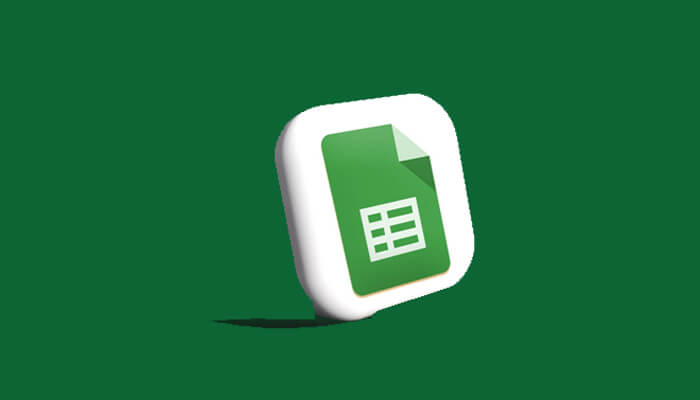The spreadsheet market has been overgrowing in recent years. This is primarily because both Google Sheets and Microsoft Excel offer incredible features. These include pivot tables and advanced formulas and functions.
Google Sheets and Excel are often used interchangeably by business people as tools. This article will provide a comparison of Google Sheets and Excel. We’ll look at the differences between these two tools to see if it’s worth switching from one to the other.
Both have pros and cons, but depending on your needs, one might be better for your use case. Let’s take a look at how they compare.
What Are Google Sheets?
Google Sheets is an ad-free spreadsheet program that is free to use. It’s a web app, meaning you can access it from any computer with internet access. You can also share your spreadsheets with others via the Google tool. This means you can collaborate with other people on the same spreadsheet.
What Is Excel?
Excel is a spreadsheet application that was first developed in the 1990s by Microsoft and continues to be updated by Microsoft today. Excel allows users to create and edit spreadsheets using formulas and Excel functions to perform complex calculations efficiently. These capabilities are commonly used in business applications such as budgeting or accounting.
Comparing Google Sheets and Excel
Microsoft Excel and Google Sheets are the most popular spreadsheet applications, but how do they differ?
Ease of Use
Excel and Google Sheets are great tools for data analysis, but they vary in ease of use. Google Sheets is more user-friendly, with a simple interface that’s easy to navigate and understand. It also provides an extensive set of features that make it easy to perform complex calculations and manipulate large volumes of data.
On the other hand, Excel provides users with more advanced tools, such as pivot tables, which allow you to analyze information in many different ways. It also has a broader range of formatting options than Google Sheets, so you can use Excel formulas to format your data the way you want it displayed.
File Size
Google Sheets and Excel are top-rated spreadsheet programs for analyzing and organizing data. One thing that sets them apart is their file size.
Excel files tend to be much larger than those created in Google Sheets. An Excel file with a dynamic range of 1 million rows will take up a large amount of disk space. A Google Sheet with the same amount of data will only take up less disk space!
Offline Access
Both Google Sheets and Excel allow you to access your data offline, so you can work on a spreadsheet from anywhere without having an Internet connection. Besides, both apps allow you to export your data into other formats for reporting purposes or for archiving older versions of information that are no longer needed.
You can edit your spreadsheets with Google sheets while offline. This is handy if you have a poor internet connection at your office or want to keep your spreadsheet the same while it’s open on the web.
Functionality
Google Sheets and Excel are both powerful tools for analyzing data. Each app has its strengths, but it’s essential to consider the specific needs of your business before making a choice. Excel’s spreadsheet functionality is robust, while Google Sheets’ complex formulas and functions make it ideal for more data-driven projects.
Add-ons
Both Google Sheets and Excel online have extensive add-on libraries that can enhance their functionality with additional functionality and features. The main difference is that Google sheets have much larger add-ons, while Excel has a more limited range. Excel’s add-ons include spreadsheets that integrate with other Microsoft Office applications.
Collaboration
Google Sheets is a free, web-based spreadsheet application that allows multiple users to work on the same document simultaneously. It has a similar look and feels to Microsoft London Excel but with some crucial differences. Google Sheets is best used for collaborative purposes and when you don’t need advanced calculations or pivot tables.
The Google Sheets collaboration features allow you to share spreadsheets with others in real-time. You can also invite others to collaborate on a spreadsheet by sharing a link that will enable them to edit and make changes. This also means that your collaborators can see any modifications you make.
Flexibility
Google sheets is an excellent tool for data analysis because it’s highly flexible. You can create different types of charts and graphs, as well as connect them to various sources of data. You can also save your work offline to continue working even when you’re not connected to the internet.
Security and Privacy Control
Google sheets have an extensive security feature set that makes it difficult for users to share data with anyone else accidentally. In addition, it provides several ways to control who can access the spreadsheet. For example, you can set restrictions on who is allowed to view or edit specific cells. This way, even if people have access to your spreadsheet, they won’t be able to make changes without your permission.
Excel London allows you to set a password for any worksheet in the workbook. This means that other people who have access to your workbook won’t be able to see your data unless they know the password.
Usability
Google Sheets is a free, web-based spreadsheet application that allows you to create and edit spreadsheets using your browser. It also allows you to view your spreadsheets from any device with an internet connection.
Excel is a paid desktop application for Windows, Mac OS X, Linux operating systems, and iOS. You’ll need to purchase a license for each operating system you want to install it on. The cost varies based on which version of Excel you purchase. This can be an issue if you’re trying to use multiple computers at once or work in an office environment where people can access more than one machine.
Storage
The free version of Google Sheets offers unlimited storage, so you can store as much data as you want and never worry about running out of space. It can hold a lot of data, which makes it perfect for crunching numbers or preparing reports. Conversely, Excel is more limited in terms of flexibility and storage options.
Conclusion
Google Sheets excels at data analysis and presenting your findings. Its multi-sheet and multi-workbook capabilities allow advanced data analysis. That is not to say that Excel cannot do some of these things, but it is not catered to them in the same way.
Google Sheets is better than Excel for data analysis. But Excel is more powerful for content creation because it can natively handle images and other rich media. Regardless, both tools are helpful in many ways.



